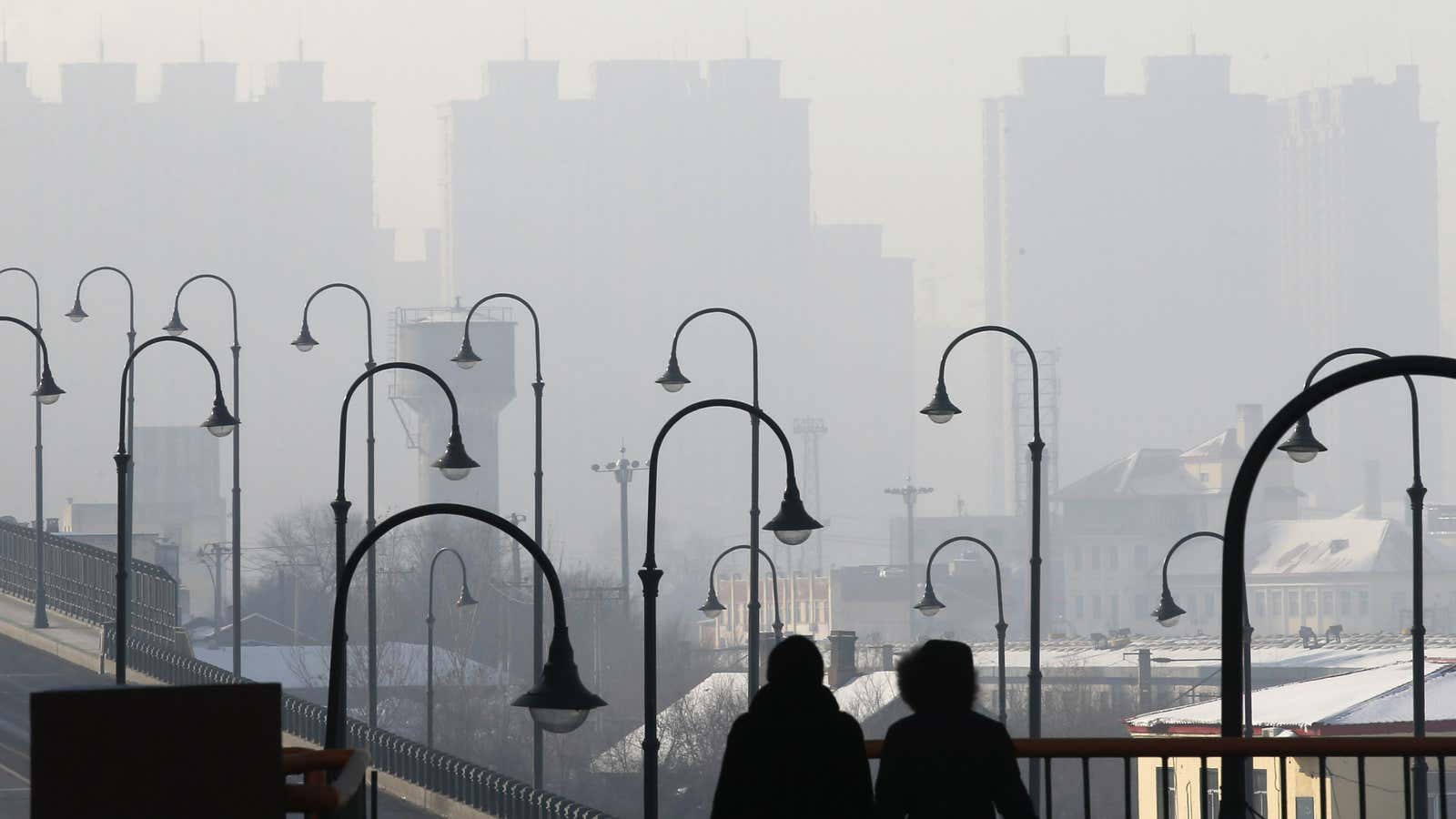For nearly a decade, Moscow and Beijing have talked up the virtues of a pipeline to ship plentiful Russian natural gas into China’s voracious energy market. But the talks have gone on so long, with so many forecasts of an imminent breakthrough, that they have become a bit of a running joke.
Now, though, the talk on the street is of a deal at last (paywall)—sometime this year, anyway—and the turnabout actually seems reasonable. What changed? Russian natural gas seems to smoothly fit into an urgent Chinese mission of cleaning up the mud-thick, coal-choked air in its major east-coast cities and easing growing public anger over pollution.
If a deal does actually happen, a major consequence could be a healthier strategic balance in Europe, which is currently Russia’s chief gas export market and the target of related gas-driven politics. With an alternative market in the East, Russia might be less inclined to belligerent tactics against its European clientele.
Shifting Chinese away from coal-fired power could be even more momentous in the long run. One fear has been that China might continue to burn just as much coal by simply shifting coal consumption to inland provinces. But there is also the chance that, with the guarantee of piped natural gas at agreed-upon rates, Beijing will cut back on coal overall, with a knock-on reduction in the growth of China’s greenhouse gas emissions.
The idea is to ship Russian gas into four dispersed Chinese entry points along the 2,500-mile route of a new pipeline called the Power of Siberia (jpg). The price of the gas—which has been the sticking point the whole time—will be between $10 and $11 per thousand British thermal units, about the same as it costs in Europe, according to the Financial Times. This represents a compromise by China, which had insisted on a lower price close to the $9 per thousand BTUs that it pays for its piped gas from Turkmenistan.
JP Morgan believes a deal is inevitable this year. So does Credit Suisse. “Sounds more likely than not this time,” Bernstein’s Oswald Clint told Quartz. As to the timing, who knows. In Clint’s opinion, it “depends what side of the bed Putin gets out of.”
